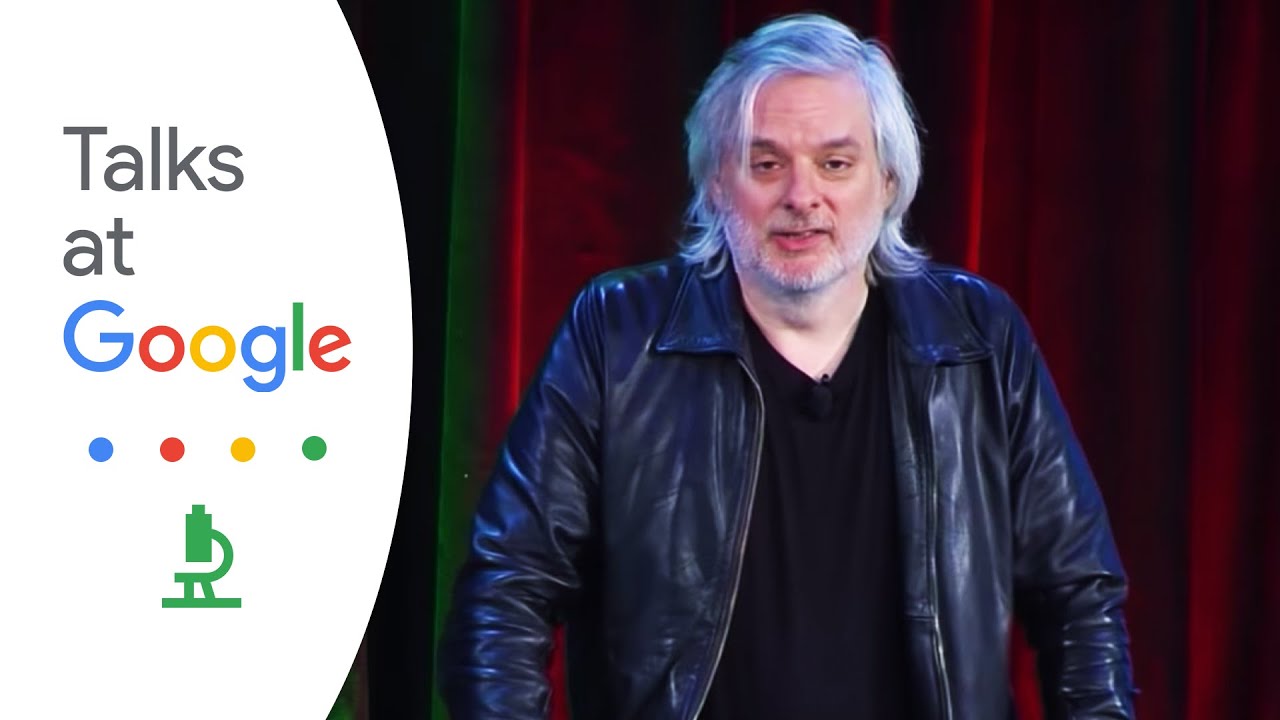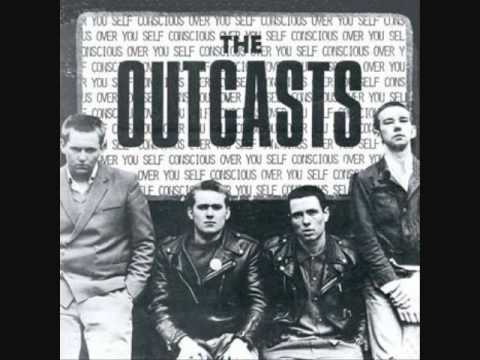Talks at Google
The hard problem of consciousness is the problem of explaining how physical systems give rise to subjective experience. The hard problem typically contrasts with the easy problems of explaining behavior. However, there is one behavior with an especially close tie to the hard problem: we make verbal reports such as “consciousness is puzzling” and “there is a hard problem of consciousness”. The meta-problem of consciousness is the problem of explaining these reports. The meta-problem is strictly speaking an easy problem, and solving it is a tractable empirical project for cognitive scientists. At the same time, a solution will almost certainly have consequences for the hard problem of consciousness. In this talk I will lay out the meta-problem research program, I will examine potential solutions, and I will investigate the consequences for artificial intelligence and other issues.
Get his recent book here: https://goo.gl/aWD3E3
Moderated by Eric Mann-Hielscher.
Source




Why does arrangement of molecules in specific way create living cells? I think that's the same reason that arrangement of these complex physical structures in brain gives rise to conscious experience. I think, It's property of matter, how it behaves when it's arranged in different ways. But what are the laws that decide what different arrangement of matter produce? We need a unified theory of matter which tells us how arrangement of matter in different ways leads to automatic processes/cells/ complex life/ Consciousness.
This was far too specialized and wide of focus to be useful for anyone who is not an expert in the field. I wonder who the people in the audience were. If they were just regular google employees (and the people sitting in the first row sure looked like it), I can imagine them having been bored out of their skulls. Chalmers goes through an impossible series of complicated and interconnected arguments and positions at a rate of four or five sentences each without bothering to explain any of them in detail (which would've been impossible anyway), covering ground which, frankly, even professionals in the field might need brushing up on to follow. The result is a mess of a talk that holds very little to no interest for anyone who doesn't have years of investment in the background of the issue. And these poor souls in the audience aren't stupid people; I'm sure they would've immensely enjoyed a grounded, step-by-step presentation of, say, the zombie argument and what problem it demonstrates for the study of consciousness.
Who's down to get their brain dissected? Just looking for volunteers
Mind-boggling to say the least
I clicked this because I've been having the whole 11:11 thing lately…. And the length of this video made my mind explode.
The illusionist view of consciousness seems to suffer from an inherent contradiction: If consciousness is an illusion, then what’s left to experience the illusion? In other words, to have an illusion there must be a subject to experience the illusion, that’s what an illusion is. An illusion is the experience by some consciousness of something that is not really there. For example, free will is probably an illusion. Our experience is that we can choose our voluntary actions, but as far as we know we live in a deterministic world, so we cannot actually have free will. But still, my experience is that I have free will; it’s an illusion. Without the “experiencer” there cannot be an illusion. Who is the “experiencer” for the illusion of consciousness?
google talks gets less views than conspiracy theorists, news outlets, & atheists lol thats hilarious….
Has anyone else noticed that his speech is exactly 1:11:11 hours long?
Consciousness is the minds ability to plan TO PLAN, a self reinforcing feedback loop that results in the illusion of being something more than it actually is….when all other explanations are discounted then the most simple explanation, no matter how improbable, must be true.
In a scientific study such as this, shouldn't you first define what consciousness is? (Or whatever specific form of consciousness you want to focus on, such as phenomenal consciousness)?
Celebrity philosophers are rare and Chalmers is in a league of his own. We have a huge thread dedicated to consciousness over at The Paracast Community Forum where Chalmers is mentioned fairly regularly ( for good reason ). I also liked him in the 2016 Isaac Asimov Memorial Debate, and of course his clips on the Ultimate Matrix movie boxed set. He always gets my like. If you like this comment, please consider visiting my music video Earth Abides. Hopefully you'll like it too!
Consciousness can not be aware of Consciousness like a knife can not cut itself. One is Consciousness.
Answer: Physical processes DO NOT give rise to conscious experience. That's a false assumption based upon the paradigm known as materialism. Materialism is an immature view of reality. There is no matter as such; everything that we think of as matter are actually objects within consciousness. The brain DOES NOT give rise to consciousness; consciousness gives rise to the brain. Max Planck: "I regard consciousness as fundamental. I regard matter as derivative from consciousness. We cannot get behind consciousness."
Consciousness = Atman. Atman = Real Self. Real Self = (sorry about this, materialists) Spirit.
My argument against illusionism was always "an illusion cannot be experienced without the existence of consciousness to experience it." – I think this really trashes illusionism.
Recently I have thought maybe what we experience is an instant "state" of existence, so time and space and "other life forms" are all illusions because the current instant is "all there is" and we are experiencing the entire state because the state has an associated experience. Yet that still means consciousness isn't an illusion…
What about the importance of why nothing will ever know what it is to be "that" bat? Even another bat will never know that bat's experiences. Before we talk about similarity and our ability to share information consciously, we should first recognize the fact that all things are individuated, including our consciousnesses, for a reason. As to be seen by coming into being.
I'm thinking there's two reasons anything relates, at all, after that. Firstly, is because all things inherit something from where they came so there is commonality. Secondly, because they can't be from where they came neither can they be anything else that came from where it/they came, so relating or not would be their only choices.
There is Truly only ever one of everything.
Why do most of the audience members appear to not be paying any attention??
Prof. David is Brilliant!
Concuousness is an emergent property from an the unconcious intelligent algorythumic cosmos
I loved his talk on Sean Carroll's podcast Mindscape. I highly recommend you check it out😃👍
Consciousness is the unlimited active relations of < I > in ( n ) directions.
If consciousness was an illusion, it wouldn't have causal powers which is clearly false.
One field of study that Chalmers is unfortunately neglecting is the Near Death Experiences reported by millions of experiencers. The study of such "first person experiences" happening while the brain has essentially shut down should shed some light on to the so-called hard problem of consciousness as defined in this talk.
So good!!! https://youtu.be/8kZt20KjKMo
The Philosopher Stoned. :-}
I believe that consciousness does not derive from the data such as visual perception. Drugs can alter consciousness even when your eyes are closed or you were so called “knocked out”. I believe consciousness is like a neurological “sixth sense”. For example my consciousness tells me the person in front of me is hostile, my senses or the “data” will validate that as a result of my consciousness (visually using body language etc’).
This is my uneducated thesis
I think You can debunk any illusionism argument if you replace the word "you" with the word "consciousness"
Consciousness is just another title for LIFE, or the Real Self. The human experience is just that, an experience LIFE is experiencing one of billions and billions of different experiences produced through a Processing System referred to as The Processing System of LIFE. It is very, very easy to see the Processing System Construct Outside the experience, (universe) when shown how or brought to your attention by them, that know and see the Processing System of LIFE themselves. Once you discover how to see this Processing System, you can study its Construct, workings and its operating language.
18:12 the problem with illusionism is that there's still something of what it's like to have the illusion… we can say the same thing about reality but that doesn't mean there's nothing there we must explain
You said that those theories (integrated information, global workspace etc.) cant explain why there are (problem) reports about consciousness, right? Well those theories are about pure consciousness I think. Thus they´re not about computation and as you argued at the beginning, to give such problem reports about consciousness is in principle an “easy problem”, a computation and thus not explainable, not to be explained by a theory about consciousness. (it’s a computation in terms of wondering and there is probably nothing special about wondering about consciousness in contrast to wondering about anything else)
Some of this is already known, but isn't publicly available. It may be released in the next couple of years.
The entanglement of two quantum states is simply the mixing of their individual qualias into a wave of both possibilities. Upon observation, the states are differentiated into their individualities. But the two colours of reality are merged into possibilities of imagination before 'measurement' (defined into abstraction). This may be closely related to quantum Darwinism as the best-fitted qualia are selected to exist in the subjective reality of the whole consciousness that makes the categorisation into its own personal abstracted reality. This may not solve the hard problem but certainly gives an explanation for its existence.
AI will only be conscious if it is integrated within base reality. That may be possible using quantum machine learning as qualia may be the wave of past possibilities determining the outcome. You cannot, however, assess the qualitative experience because you would have to collapse the wavefunction to observe the state. This is a paradox that has been around in the east for centuries however the west needed to exhort the scientific method to come to the Taoist revelations. In a world where future observation affects the past physical state, anything is possible, you just have to put your mind to it.
The mind is the sea of potential that collapses into its chosen qualia.
Everything is a part of the universally correlated system of reality where the end goal seems to be the final highest level of integrated consciousness (heat death). All material has the element of mind (qualia) and seeks to bond its qualia in a non-zero sum relationship with other material creating a larger system which is not only greater but also different to the sum of its parts. Evolution drives the life impetus of all material and sets its specific qualia in favour, for example, red over blue. The heat death is, therefore, one dominating qualia that wins its selection for existence. This could be evidence of simulation theory as the end goal is to evolve the highest form of the qualitative experience that dominates all matter. I would like to discern that fundamental physics implies transcendental panpsychism with many isms relating to ancient eastern philosophy.
David is confused over a simple matter. Yes, consciousness is nothing but an ensemble of particles.
Wonderful talk presenting many different and contradictory perspectives. Now we just have to integrate them all into a more cohesive theory.
Well everything is physical, even a signal, even a very brief electrical signal in your brain. If you can talk about something then it is physical because it obeys the laws of the universe. Also everything has mass or energy or both. A signal in your brain carries energy and some mass so it is physical.
Your consciousness more than likely has some mass and it also moves through space and time. You were conscious yesterday but that is now gone and you are here today so you have moved through time. If you walk around your consciousness moves with you. Whether or not it is really in your head or somewhere else does not matter, If we are all inside the Matrix , then we still have a consciousness and move through time. The space part is more difficult but in the Matix all laws of physics are off the table.
The only thing I am not sure about is if information has mass or energy. But I say that the concept of information is an idea and the idea resides in human brains so it consists of signals of electrons, therefore has mass and energy. So really everything has mass and or energy.
…there could be the third order or derivative, "making" it the problem of the problem of the hard problem, and then the meta-problem of the problem of consciousness. …could there be "layers" other than the physical ones? …this presentation is very important for all those ignorants out there, that are not giving it the right value!
The problem with consciousness is that there is no way to describe it using terms that don't mean exactly the same thing as consciousness. Thus to say it 'feels like' something to be conscious is really just saying it feels like something to feel like something. Same with 'awareness'…which is essentially the same thing as consciousness. It is this inability to describe consciousness in terms that don't just mean the exact same thing that is the heart of the hard problem.
Waffling c*nt.
Illusionists are zombies.
Great speech!
All A.I.. such as in Robots is nothing more than a Complex animation with multiple endings.. The endings are always going to be the the work of the Author, Developer or any Creative person.. No matter how complex the code is, it will never have self awareness.. The Illusion Theory is comical as you need Awareness to experience the Illusion… Illusion is just a visual, auditory or Sense Prank where you think one thing, only to uncover another thing later.. If I were to guess what Consciousness is, Really is.. I would say its a part of some, Living organisms, that is beyond the Physics based Universe. Beyond our limited Thoughts.. It is also so close as to oversee our Physics based Existence and Partner with us.. So Basically what Believers in God have been trying to say from the Beginning, a Soul.. So our true nature is far more Extraordinary than we can currently comprehend !!
If you find the topic interesting, David Pearce's review of David Chalmers' The Conscious Mind may be a rabbit hole for you: https://www.hedweb.com/philsoph/chalmers.htm
How many times will some educated idiot make a video on consciousness, repeating what we already know and don't know. Nothing new to see here from any video recorded 20 years ago. Yawwwwn.
Consciousness is an evolutionary fractal mechanism. The fuel/input, ideas and experiences that one is exposed to (create the quality of) consciousness. That's all i got.
Wonderful theme… "He who has the consciousness of reality has eternal life—that lamp which can never be extinguished." – Abdu’l-Baha, Baha'i Faith